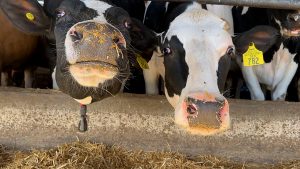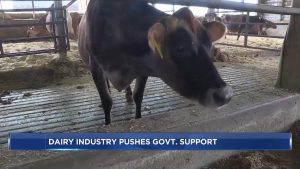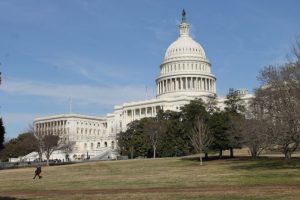
In this week’s Field Report, new research reveals rural America’s reliance on the ACA, now possibly in peril under Trump; potential picks for U.S. food and ag posts; and more.
Now that President Trump has won back the presidency and Republicans are likely to control both the House and Senate going forward, their longtime efforts to repeal or water down the Affordable Care Act (ACA) may be back on the table. At the very least, Biden-era subsidies will likely end, making coverage unaffordable again for millions of people.
One group that will most certainly feel the impacts? America’s farmers and their families.
According to a new report, uninsured rates in rural America have been cut nearly in half since President Obama signed the ACA—commonly referred to as “Obamacare”—into law in 2010.
It’s one of several findings from researchers at the U.S. Department of Health and Human Services (HHS) that have clear implications for farmers and broader agricultural communities—especially in the wake of last week’s election results.
The researchers also found that, while rural residents make up 14 percent of the U.S. population, they account for 17.4 percent of enrollment in federal marketplace insurance plans. Rural Americans also saved more money compared to urban Americans as a result of increased healthcare subsidies authorized in President Biden’s American Rescue Plan (ARP), which made ACA coverage cheaper.
Uninsured rates in rural America have been cut nearly in half since President Obama signed the Affordable Care Act (ACA) into law in 2010.
While there’s no way to know exactly how many farmers are represented in the overall rural numbers, Mike Stranz, the vice president of advocacy at the National Farmers Union (NFU), said there’s no doubt the law has had a positive impact on his organization’s membership.
“Access to affordable, quality healthcare has been a top issue for Farmers Union members for decades,” he said. “We’ve been hearing a good bit from our members about how they’ve been able to use and benefit from the exchanges, and having access to those plans has been hugely beneficial.”
David Howard, Policy Development Director at the National Young Farmers Coalition, agreed. “Affordable and accessible health care, along with affordable and accessible mental and behavioral wellness support, are high-priority needs that we consistently hear expressed by farmers and ranchers across our network,” he said in an emailed statement. Even with ACA coverage available, 79 percent of all respondents to their 2022 national young farmer survey identified the cost of healthcare as a challenge.
Most Americans get health insurance through their employers, but since farmers tend to be self-employed, access has historically been challenging. Often, one member of a farm couple takes an off-farm job primarily for the benefits it provides for the family.
The HHS data builds on findings from a report released earlier this year that sliced and diced enrollment data differently, but also pointed to significant positive impacts on farm communities. Instead of rural vs. urban areas across the country, analysts at the Robert Wood Johnson Foundation looked at ACA enrollments in the 10 U.S. states where farmers make up the largest proportion of the population—and found uninsured rates declined by about 25 percent in those states since 2014. That number would also be higher except that two of those states, Kansas and Wyoming, rejected ACA Medicaid expansions and saw much smaller declines, pulling down the overall average.
“At a high level, the message is clear: Medicaid and the [ACA] Marketplace are important sources of health insurance coverage in farm states for farmers and their families, rural residents, and others,” the researchers concluded.
Overall, their numbers showed 19–34 percent of the population in the 10 farm states are now covered by ACA plans and Medicaid expansions. Kentucky topped the list at 34.6 percent enrolled, and within congressional districts, some of the numbers were even higher.
“Medicaid and the [ACA] Marketplace are important sources of health insurance coverage in farm states for farmers and their families, rural residents, and others.”
Kentucky’s 5th District, for example, is one of the country’s most rural districts. Farmers there primarily raise poultry and cattle and plant row crops. There, 51 percent of the population relies on ACA marketplace plans or Medicaid expansions. Despite that, voters there have been represented in Washington, D.C. since 1981 by Republican Representative Hal Rogers, who states on his website that “one of the greatest challenges we face in healthcare policy remains the disastrous Affordable Care Act, or Obamacare.” Another Kentucky Republican Congressman, Thomas Massie, is in the pool of possible picks for Trump’s Secretary of Agriculture. Massie voted against a 2017 attempt to roll back some ACA provisions because he believed it didn’t go far enough in fully dismantling Obamacare.
While the official party platform no longer calls for a wholesale repeal, the Republican Study Committee budget proposes ending increased subsidies for coverage (which were extended through the Inflation Reduction Act), “while adopting reforms that reduce premiums and increase access to and choice of care for all Americans.” At a campaign event earlier this month, Speaker of the House Mike Johnson (R-Louisiana) said massive changes to healthcare were coming and used the phrase “No Obamacare.”
The last time Republicans attempted to repeal the law, farmer groups, including NFU and the National Young Farmers Coalition, rallied to stop them.
Since then, Stranz said, NFU farmers have been working within states to expand and bolster the law’s benefits. For example, in 2022, the South Dakota Farmers Union successfully supported a ballot initiative to get the state to accept ACA Medicaid expansions. And earlier this year, Wisconsin Farmers Union members lobbied their state government to do the same.
As to whether the group will fight any future efforts to dismantle the law, “Farmers Union members adopted grassroots policy that very clearly affirms the right of all Americans to have access to affordable quality health care,” Stranz said. “Even as we want to see improvements to our healthcare system, we certainly don’t want to erode what we currently have.”
(Kitchen) Cabinet Picks. With the election decided, rumors about who will lead the agencies that oversee the nation’s food system are everywhere. Yesterday, Trump announced former New York Congressman Lee Zeldin will run the U.S. Environment Protection Agency. Earlier this year, Trump was reportedly considering Texas agriculture commissioner Sid Miller to run the U.S. Department of Agriculture (USDA) and other names are also in the mix. Now, Massie has risen to the forefront as a potential Secretary of Agriculture, after farmer Joel Salatin posted that a Trump administration team member told him Massie had the job. Salatin, a controversial figure in sustainable agriculture circles who is a proponent of aggressive deregulation and small government, said he has been named an advisor to the Secretary of Agriculture. Meanwhile, speculation continues over whether Robert F. Kennedy, Jr. will be tapped to run the Food and Drug Administration (FDA) or if he will take on some other role in the administration.
Food and Farming Ballot Measure Results. When voters went to the polls last week, some were faced with decisions around food production and pricing. In Denver, voters rejected a proposal to ban slaughterhouses within city limits, while voters in Sonoma County rejected a controversial initiative to ban Concentrated Animal Feeding Operations (CAFOs). In Berkeley, California, a measure to ban animal agriculture within city limits passed (though it’s largely symbolic, as there are no commercial livestock farms in the city). In South Dakota, voters said no to a ballot option that would have repealed taxes on groceries. Two states voted on whether to end forced labor in prisons, which often involves farming or food manufacturing: Nevada’s voters said yes, while California’s said no.
Food and Ag (and Trump’s Presidency) at COP29. As global leaders meet in Azerbaijan this week for the biggest international climate conference of the year, food and agriculture are on the agenda. November 19 is designated Food, Agriculture, and Water Day and includes a “high-level meeting” of world leaders on reducing methane from food waste. There are several accompanying events for companies and NGOs to attend, but, like last year, almost no attention to the meat and dairy industries—key drivers of food-system emissions. Smallholder farmers who are part of a new alliance called the Family Farmers for Climate Action will be onsite to push for more funding for small family farms and climate justice initiatives.
Agriculture Secretary Tom Vilsack will participate in three events related to AIM for Climate, the climate-smart farming initiative USDA launched with the United Arab Emirates at COP26. At one, new commitments—including a $100 million investment in “alternative proteins” led by the Bezos Earth Fund—will be announced.
Meanwhile, hanging over the gathering is what Trump’s recent election win will mean for the future of global climate goals. Trump has vowed to once again withdraw the U.S. from the Paris Agreement, and Project 2025 proposes taking that a step further to also withdraw from the U.N. Framework Convention on Climate Change. Since election day, several climate and environmental groups that work on the food system have vowed to fight Trump’s plans to deregulate. The Natural Resources Defense Council and Earth Justice are both vowing to use established legal pathways to fight environmental rollbacks, while the Ocean Conservancy is calling attention to the need to safeguard ocean wildlife and fisheries.
You can now read the most important #news on #eDairyNews #Whatsapp channels!!!
🇺🇸 eDairy News INGLÊS: https://whatsapp.com/channel/0029VaKsjzGDTkJyIN6hcP1K

























